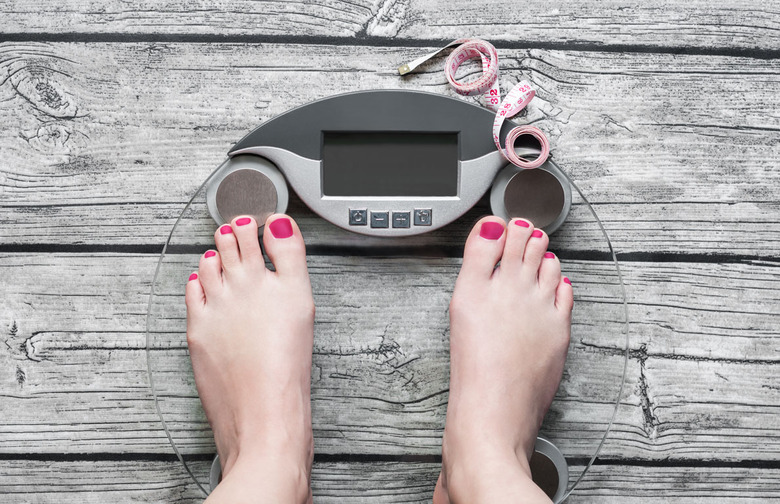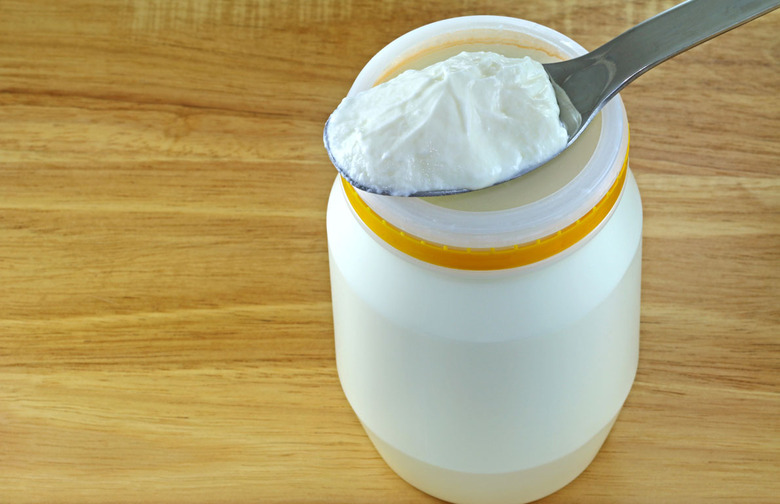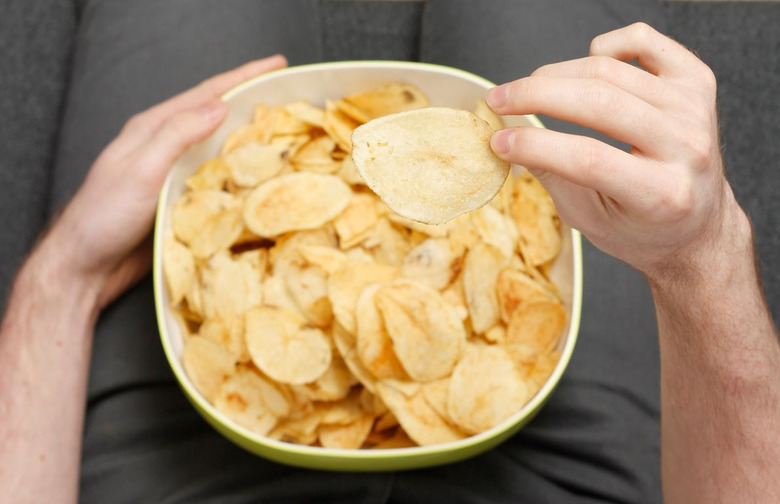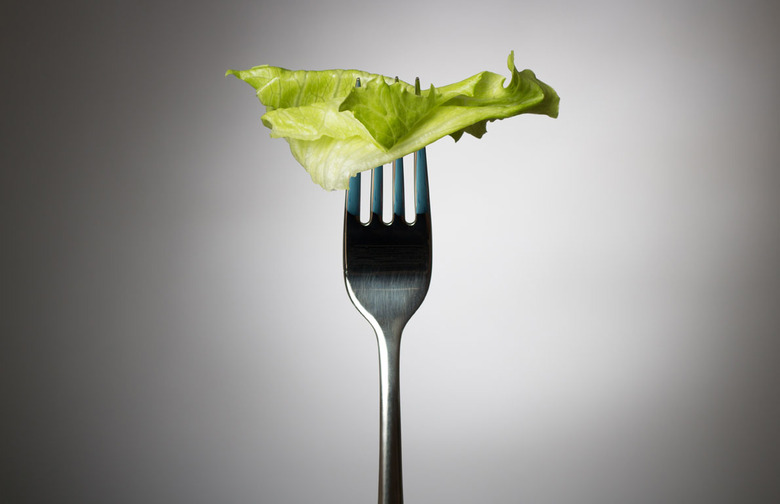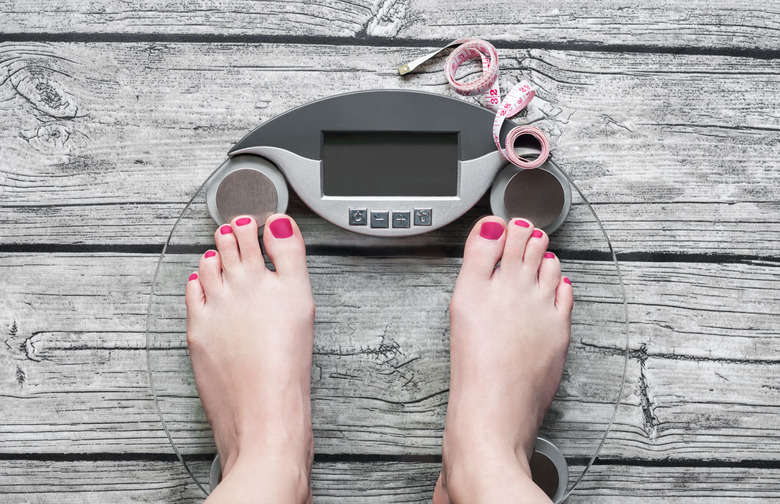Why The Scale Doesn't Always Matter And Other Things To Know About Weight Loss Slideshow
"Self-mastery is the most important variable in an effective diet. Many people achieve this through food journaling, although journaling is only one aspect of self-mastery. The most important aspect of self-mastery is setting a daily menu and then following through with it. Self-mastery can also be described as dieting 'compliance.' Everything else is secondary to this."
— Dr. Ben G. Adams, clinical psychologist and creator of the Creative Process Diet
Why the Scale Doesn't Always Matter and Other Things to Know About Weight Loss
Dieting for most people means no sweet treats, more working out, and keeping track of your progress. But sometimes, after doing everything you're supposed to, you step on the scale and see the needle hasn't really moved. Suddenly, you feel deflated and unmotivated, and you start going through the vicious cycle of dieting all over again.
Before you start punishing yourself for "failing," you need to know: the scale (and many other health tropes) isn't all it's cracked up to be.
Eat Breakfast
"It's true: breakfast is the most important meal of the day. Including this meal in your routine is a common denominator for successful weight loss and maintenance. The explanations for this observation include the possibility that breakfast does the following:
— Suppresses mid-morning hunger
— Produces better blood glucose and elevates basal metabolic rate
— Yields fewer episodes of imbalanced, impulsive, or excessive eating later in the day
— Increases fiber intake (e.g., from cereals, fruits, and whole grains)
— Reduces dietary fat intake
— Encourages improved health consciousness"
— Rene Ficek, registered dietitian and the Lead Nutrition Expert at Seattle Sutton's Healthy Eating
shutterstock/265579967
"Equally important is following a low-fat diet, which appears to be beneficial for several reasons. First, fat contains nine calories per gram compared to four calories per gram for carbohydrates and protein. Second, high-fat foods are often dense, making large portions easy to consume. They're generally more tempting, so it is easy to eat more than intended."
— Rene Ficek
Get Stress Under Control
"Studies repeatedly show that when people are bored or stressed, they're likely to eat high-fat, sugary, or salty foods. While these foods often feel comforting, it's not just about the emotional eating — a chemical reaction to stress (increased levels of cortisol and insulin) can actually cause hunger pains."
— Alissa Rumsey, registered dietitian, certified strength and conditioning specialist, and spokesperson for the Academy of Nutrition and Dietetics.
Limit Television Viewing
"Most dieters who have lost weight and maintained that weight loss have reduced their screen time. The records of the successful National Weight Control Registry dieters confirm this. A high percentage of the registrants (about 62 percent) reported watching 10 or fewer hours of television per week, and more than one third (about 36 percent) watched less than five hours of television per week. The remainder of this group viewed more than 21 hours of television per week. The national average time for watching television is 28 hours per week, or four hours per day, for the average American adult. This is a tremendous amount of time people spend engaged in sedentary activity. Similarly, childhood obesity specialists report a connection between pediatric weight control problems, increased body mass indexes, and excessive television viewing. Additionally, many TV viewers report uncontrollable desires for advertised snacks, which are usually high in both fat and calories."
— Rene Ficek
Reduce Calories
"To lose weight, one must create an energy deficit. Contemporary recommendations encourage a gradual weight loss of about one to two pounds per week. People can generally reach this goal with a deficit of 500 to 1,000 calories per day. Sustaining this calorie deficit should produce a 5 percent weight loss within a couple months for most people. A general calorie goal for weight loss should be around 1,200 calories/day. 1,200 calories a day produces a calorie deficit for most people, but provides enough to keep you full and your metabolism fueled."
— Rene Ficek
Sleep is Essential
"It's not just eating and exercising — sleep matters too! Too little sleep has been linked with increased levels of ghrelin, a hormone that stimulates our appetite, as well as decreased levels of leptin, a hormone that helps control our appetite. Not getting seven to eight hours of sleep per night has been linked to higher rates of overweight and obesity."
— Alissa Rumsey
You Can Lose a Size Without Losing Weight
"You can gain muscle and lose a size without losing weight. Put as simply as possible, when you work out, you're trading body fat for lean muscle. What most people don't realize is that a pound of fat takes up much more space than a pound of muscle. That means, if you're utilizing a weight-lifting routine (and you should be!), you may see increases in muscle tone and a loss in size without seeing the number the scale change dramatically."
— Nick Brennan, Founder & CEO, Unbeaten Fitness, LLC

